The importance of nutrition in physician performance and well-being
A novel approach to improve physician well-being is to address their nutrition and hydration status. This lectures covers evidenced-based nutritional strategies for improving brain health and function, sleep and alertness in physicians. Topics include ways to (a) improve dietary habits that affect sleep ,(b) utilize nutritional methods to improve alertness while sleep deprived, and c) to maintain and improve short and long-term brain health.
Fat Chance for Nutrition and Obesity Education in Medical Schools
Obesity rates have risen dramatically across the US and around the world. Obesity rates in children indicate that this problem will continue to dramatically influence health care for decades to come, especially with respect diabetes and metabolic syndrome. It is essential that we prepare our future physicians to effectively treat nutritionally related conditions including obesity. This program will review the current state of nutrition and obesity education in the US and introduce the integrated nutrition model used at the Campbell University School of Osteopathic Medicine.
Integrating Wellness & Nutrition – Lessons from University of Cincinnati
This session will briefly review the problem of healthcare provider stress, high rates of burnout, and describe high-level multi-pronged interventions to address these critical issues. The session will focus on highlighting two successful programs currently underway at the University of Cincinnati’s College of Medicine that constitute a preventive and educational approach to fostering well-being. One is the course in mind-body medicine, modeled after the program at Georgetown University School of Medicine, which is now underway in 7 of our 13 Colleges at UC. This effort is aimed at advancing student wellness and resilience by teaching students mind-body skills in supportive group formats that are facilitated by trained faculty. The second program to be described is the Turner Farm Student Wellness retreats, where inter-professional groups of healthcare students are exposed to concepts such as Food as Medicine, Mindfulness for Stress Reduction, and a hands-on teaching kitchen experience at a weekend retreat. Both program presentations will include information on development, outcomes, and sustainability plans to enable faculty and administrators at other schools to consider implementing or adapting.
Project on the Good Physician – Using Life Stories to Study Medical Student Well-being
In this session, we will introduce the Project on the Good Physician, which aims to develop the first national, longitudinal study of the moral and professional formation of American physicians over the course of their medical training. Specifically, we will present qualitative findings from the Project’s latest article, which highlight the importance of using a life-course approach when studying medical student well-being. We argue that initiatives to reduce stress and burnout should extend beyond the immediate medical school context and should invite students to consider how past challenges might become future sources of resilience.
Peer Support – Mitigating the Emotional Toll of Medical Errors
Dr. Shapiro’s talk will address the unique role that frontline physicians can play in supporting one another, particularly following an adverse event. She will discuss the impact that adverse events have on clinicians, describe the peer support program developed at the Brigham and Women’s Hospital, and discuss how the initiatives developed by the BWH Center for Professionalism and Peer Support work to foster a culture of trust, mutual respect and teamwork throughout the institution.
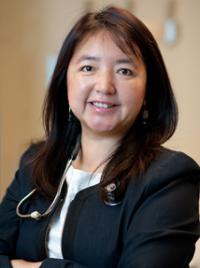 Dr. Angela Cheung is Professor of Medicine at the University of Toronto, Senior Scientist, Director of Women’s Health Program and Director of Osteoporosis Program at the University Health Network. She is an academic general internist who obtained her M.D. degree from Johns Hopkins University School of Medicine in 1988, and her Ph.D. degree from Harvard University in 1997. She has been in clinical practice for more than 25 years, and has taught many young physicians, trainees, graduate students and postdoctoral fellow. She leads an interdisciplinary research group that focuses on musculoskeletal and postmenopausal health, with a holistic preventative approach.
Dr. Angela Cheung is Professor of Medicine at the University of Toronto, Senior Scientist, Director of Women’s Health Program and Director of Osteoporosis Program at the University Health Network. She is an academic general internist who obtained her M.D. degree from Johns Hopkins University School of Medicine in 1988, and her Ph.D. degree from Harvard University in 1997. She has been in clinical practice for more than 25 years, and has taught many young physicians, trainees, graduate students and postdoctoral fellow. She leads an interdisciplinary research group that focuses on musculoskeletal and postmenopausal health, with a holistic preventative approach.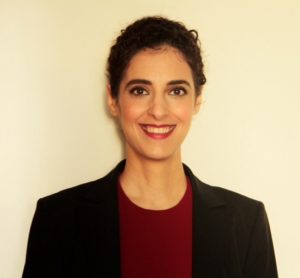 Maryam Hamidi, PhD is a scientist engaged in conducting innovative research projects including development, implementation and evaluation of interventions to improve physicians’ well-being and professional fulfillment at Stanford Medicine WellMD Center and Department of Psychiatry and Behavioral Medicine. Dr. Hamidi completed her graduate studies in nutritional sciences at University of Toronto in Canada. She is the author and co-author of many highly cited scientific papers on nutrition and well-being and maintains membership in Canadian Nutrition Society and the American Society for Nutrition. Dr. Hamidi has particular nutrition expertise in enhancing the cognitive performance and alertness of professionals with high cognitive demands, in particular physicians. Prior to joining Stanford Medicine she served as a scientific associate at the University Health Network of Toronto, and as an advisor to Air Canada Rouge pilots and cabin crew on optimal nutrition.
Maryam Hamidi, PhD is a scientist engaged in conducting innovative research projects including development, implementation and evaluation of interventions to improve physicians’ well-being and professional fulfillment at Stanford Medicine WellMD Center and Department of Psychiatry and Behavioral Medicine. Dr. Hamidi completed her graduate studies in nutritional sciences at University of Toronto in Canada. She is the author and co-author of many highly cited scientific papers on nutrition and well-being and maintains membership in Canadian Nutrition Society and the American Society for Nutrition. Dr. Hamidi has particular nutrition expertise in enhancing the cognitive performance and alertness of professionals with high cognitive demands, in particular physicians. Prior to joining Stanford Medicine she served as a scientific associate at the University Health Network of Toronto, and as an advisor to Air Canada Rouge pilots and cabin crew on optimal nutrition. Nicholas Pennings, DO is board certified in Family Medicine and Obesity Medicine. Dr. Pennings did his undergraduate work at Cornell University and completed his medical education at the Philadelphia College of Osteopathic Medicine. He completed his family medicine residency at Metropolitan Hospital in Philadelphia and engaged in private practice in NY State where he help form a large, multispecialty group. Dr. Pennings moved from private practice into academic medicine joining the faculty of the Campbell University School of Osteopathic Medicine in 2013. He currently serves as Chair of Family Medicine and as the medical director of the Campbell University Health Center. Dr. Pennings is a past trustee and currently serves as chair of the CME committee for the Obesity Medicine Association. Dr. Pennings research interests focus on the relationship between endogenous insulin production and weight gain as well as the impact of intensive lifestyle change on health improvement.
Nicholas Pennings, DO is board certified in Family Medicine and Obesity Medicine. Dr. Pennings did his undergraduate work at Cornell University and completed his medical education at the Philadelphia College of Osteopathic Medicine. He completed his family medicine residency at Metropolitan Hospital in Philadelphia and engaged in private practice in NY State where he help form a large, multispecialty group. Dr. Pennings moved from private practice into academic medicine joining the faculty of the Campbell University School of Osteopathic Medicine in 2013. He currently serves as Chair of Family Medicine and as the medical director of the Campbell University Health Center. Dr. Pennings is a past trustee and currently serves as chair of the CME committee for the Obesity Medicine Association. Dr. Pennings research interests focus on the relationship between endogenous insulin production and weight gain as well as the impact of intensive lifestyle change on health improvement.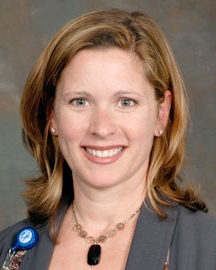 Sian Cotton, PhD, is a Professor in the Departments of Family and Community Medicine and the Founding Director of the UC Center for Integrative Health and Wellness (CIHW) and UC Health Integrative Medicine at the University of Cincinnati College of Medicine. As a clinical health psychologist, Dr. Cotton has worked with children, adolescents and adults with a variety of medical and psychiatric conditions. In 2007, she was awarded a K23 career development award by the National Institutes of Health to examine the role of spiritual coping and health-related quality of life in adolescents with a chronic illness. Dr. Cotton’s research focuses primarily on mindfulness based interventions for improving wellness and integrative medicine practice-based research. The CIHW is a member of the international Teaching Kitchen Collaborative in collaboration with Turner Farm’s teaching kitchen, where Dr. Cotton conducts student and community wellness educational programs. She speaks regularly with community organizations, healthcare audiences, and academic groups about mind-body medicine for stress reduction, and preventive and wellness-based approaches to healthcare. Dr Cotton currently serves on the Board of Directors for the Academic Consortium of Integrative Medicine and Health.
Sian Cotton, PhD, is a Professor in the Departments of Family and Community Medicine and the Founding Director of the UC Center for Integrative Health and Wellness (CIHW) and UC Health Integrative Medicine at the University of Cincinnati College of Medicine. As a clinical health psychologist, Dr. Cotton has worked with children, adolescents and adults with a variety of medical and psychiatric conditions. In 2007, she was awarded a K23 career development award by the National Institutes of Health to examine the role of spiritual coping and health-related quality of life in adolescents with a chronic illness. Dr. Cotton’s research focuses primarily on mindfulness based interventions for improving wellness and integrative medicine practice-based research. The CIHW is a member of the international Teaching Kitchen Collaborative in collaboration with Turner Farm’s teaching kitchen, where Dr. Cotton conducts student and community wellness educational programs. She speaks regularly with community organizations, healthcare audiences, and academic groups about mind-body medicine for stress reduction, and preventive and wellness-based approaches to healthcare. Dr Cotton currently serves on the Board of Directors for the Academic Consortium of Integrative Medicine and Health.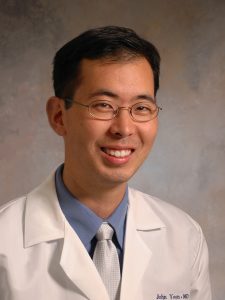 Dr. John Yoon
Dr. John Yoon Dr. Tania M. Jenkins is an assistant professor at Temple University in the department of sociology. She received her Ph.D. in Sociology from Brown University in May 2016 and worked as a Canadian Institutes of Health Research postdoctoral fellow at the Center for Health and Social Sciences at the University of Chicago from 2016-2017. Dr. Jenkins’ research interests lie within medical sociology, the sociology of professions, health, medical and scientific ethics, social status and inequality, and qualitative methodologies. More specifically, her scholarship focuses on professional dynamics within the medical profession that can shape experiences of inequality and wellbeing among physicians. Dr. Jenkins is currently writing a book (under contract with Columbia University Press) based on her doctoral research, which explores the emergence of status inequalities within the American medical workforce between US-trained and non-US trained physicians. Her current research focuses on physician mental health and explores the complex organizational, professional, and gendered factors that can contribute to an unhealthy physician workforce. Dr. Jenkins’ research has been funded by the National Science Foundation, the Canadian Institutes of Health Research, as well as the Social Sciences and Humanities Research Council of Canada and has appeared in Social Science & Medicine, the American Journal of Public Health and Health, among others. It has also received several awards, including the Roberta G. Simmons Outstanding Dissertation in Medical Sociology Award from the American Sociological Association.
Dr. Tania M. Jenkins is an assistant professor at Temple University in the department of sociology. She received her Ph.D. in Sociology from Brown University in May 2016 and worked as a Canadian Institutes of Health Research postdoctoral fellow at the Center for Health and Social Sciences at the University of Chicago from 2016-2017. Dr. Jenkins’ research interests lie within medical sociology, the sociology of professions, health, medical and scientific ethics, social status and inequality, and qualitative methodologies. More specifically, her scholarship focuses on professional dynamics within the medical profession that can shape experiences of inequality and wellbeing among physicians. Dr. Jenkins is currently writing a book (under contract with Columbia University Press) based on her doctoral research, which explores the emergence of status inequalities within the American medical workforce between US-trained and non-US trained physicians. Her current research focuses on physician mental health and explores the complex organizational, professional, and gendered factors that can contribute to an unhealthy physician workforce. Dr. Jenkins’ research has been funded by the National Science Foundation, the Canadian Institutes of Health Research, as well as the Social Sciences and Humanities Research Council of Canada and has appeared in Social Science & Medicine, the American Journal of Public Health and Health, among others. It has also received several awards, including the Roberta G. Simmons Outstanding Dissertation in Medical Sociology Award from the American Sociological Association.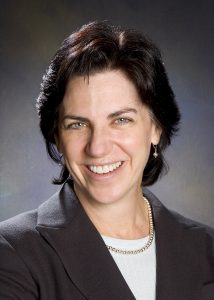 Jo Shapiro, MD, FACS, Dr. Shapiro is the director of the Center for Professionalism and Peer Support and a surgeon in the Department of Surgery at the Brigham and Women’s Hospital (BWH) in Boston and an Associate Professor of Otolaryngology at Harvard Medical School.
Jo Shapiro, MD, FACS, Dr. Shapiro is the director of the Center for Professionalism and Peer Support and a surgeon in the Department of Surgery at the Brigham and Women’s Hospital (BWH) in Boston and an Associate Professor of Otolaryngology at Harvard Medical School.